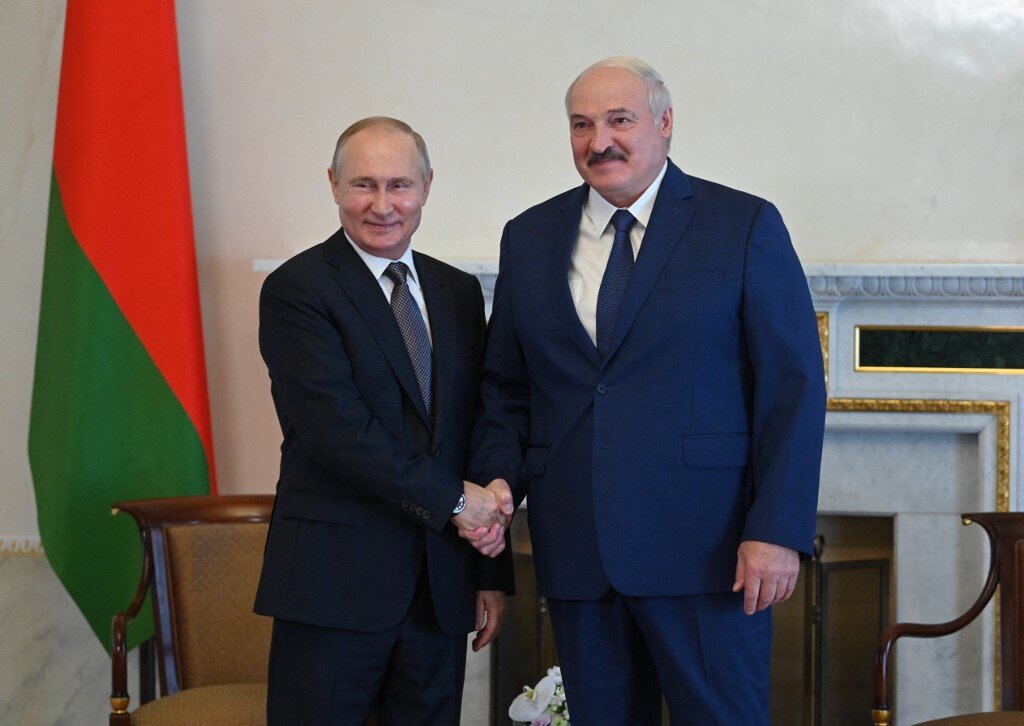A year after Belarusian strongman Alexander Lukashenko claimed he was supported by over 80% of the country’s voters, thousands of political refugees are in exile and the country is isolated from the democratic world.
On Aug. 9, the first anniversary of Belarus’s fraudulent election, U. S. President Joseph Biden imposed a new round of sanctions on 17 companies that supported Lukashenko’s regime and 27 individuals involved in the violent suppression of the post-election countrywide protests.
The sanctioned companies include Belaruskali, which produces 20% of the world’s potash fertilizers, and the Belarus Olympic Committee, responsible for an attempt to abduct athlete Kristina Timovksaya, who escaped and was granted a humanitarian visa by Poland.
“Rather than respect the clear will of the Belarusian people, the Lukashenko regime perpetrated election fraud, followed by a brutal campaign of repression to stifle dissent,” Biden said in a statement.
The U. K. and Canada joined in the sanctions. Switzerland imposed them two days later.
Yet foreign powers have a limited influence on Belarus. Lukashenko’s regime, propped up by Russia, successfully crushed its opposition and continues to wage terror against those daring to question the dictator’s authority.
“I don’t believe that the Belarus regime can fall because of the pressure from Ukraine, the U.S. and the European Union,” said political analyst Artyom Shraibman, who was forced out of the country by the regime.
“Nothing will change until Moscow decides that it’s time to stop supporting Lukashenko.”
Crushing dissent
Hours after Lukashenko declared victory in the 2020 presidential elections, hundreds of thousands of Belarusians took the streets in protest.
The Aug. 9 elections were deemed fraudulent by Ukraine, the EU and the U.S. while Belarus opposition leader Svetlana Tikhanovksaya called on her supporters to “protect their vote.”
A peak number of 200,000 of Belarusians were on the streets demanding free elections, record-breaking numbers for a country of 9.5 million people.
Yet the protesters couldn’t stand up to Lukashenko’s use of force.
Tikhanovksaya, who ran in the elections on behalf of her imprisoned husband Sergei, was forced out of the country. Many protesters were jailed and tortured.
Starting in May, prominent opposition activists received long prison sentences.
According to human rights group Vesna, as of Aug. 9, there are 1,450 ongoing political trials and 610 people have been jailed for political activism. A total of 35,000 people were detained since the protests began, while hundreds of people were beaten in detainment.
Independent news outlets were shut down by authorities. At least 35 journalists were imprisoned for their work, including Belsat journalists Yekaterina Andreyeva and Daria Chultsova, who were sentenced to two years in jail on charges of “violating public order” by streaming a police crackdown on protesters in Minsk.
“All media have been crushed, everything is blocked,” Dmitry Halko, an exiled Belarusian journalist based in Ukraine, told the Kyiv Post in late May.
“It will be safe to say that Lukashenko was able to crush dissent,” said Shraibman, who now lives in Kyiv.
Drifting east
Despite all the atrocities, Lukashenko remains in power, with little fear of being deposed.
Lukashenko’s regime is politically and financially supported by President Vladimir Putin’s Russia, while western sanctions remain limited.
Since August 2020, Lukashenko met with Putin in Russia five times. Putin loaned $1.5 billion to Belarus to keep the country’s economy afloat.

Russian President Vladimir Putin (L) shakes hands with his Belarus counterpart Alexander Lukashenko in Saint Petersburg on July 13, 2021. (AFP)
Russia also is selling Belarus oil and gas below market rates, allowing the country to profit from its two refineries that refine about 20 million tons of oil per year.
Most petroleum products are later sold to Ukraine.
According to the International Monetary Fund, up to 27% of Belarusian GDP is propped up by the Russian government’s investments. The average yearly Russian financial support of Lukashenko’s regime accounts to $9 billion.
Russia has been vocal in its support of Lukashenko, conducting joint military drills and offering Russian riot police to assist with patrolling the streets.
“We will continue to provide full assistance to Belarus amid the ongoing political pressure,” Putin said on July 1. “Belarus isn’t simply our neighbor, it’s our closest ally.”
“The two pillars that allow Lukashenko to maintain his power is the support of law enforcers and Moscow backing,” Shraibman told the Kyiv Post.
With Lukashenko’s regime backed by Putin, Western pressure remains feeble.
The U.S., the EU and Ukraine imposed individual sanctions on most Belarusian top officials and have sanctioned Belarus key state-owned companies — Belaruskali, Naftan oil refinery, Belarus Oil Company and Belavia airlines.
However, Belarus is successfully dodging sanctions by removing customs data regarding oil products and potash exports, hiding the statistics of the Naftan refinery’s production and creating new companies to take over from the sanctioned ones.
“Lukashenko obviously sees himself as the winner, yet looking at how anxiously he reacts to any kind of dissent and sanctions, he doesn’t think that the crisis is over,” said Shraibman. “There’s a notion that if he loosens repressions, the situation can roll back to active protests.”
